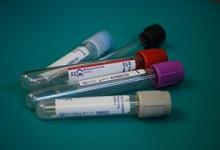Moderate Alcohol Intake While on Methotrexate Appears Prudent Save

Research presented at the annual British Society for Rheumatology conference revealed that rheumatoid arthritis (RA) patients who drink moderately while taking methotrexate (MTX) appear to be at no greater risk for liver damage than nondrinkers. They found the risk of increased liver function tests were not different between drinkers and nondrinkers (Hazard Ratio 1.12; 95% CI 0.82-1.51). These findings were previewed in the current issue of Rheumatology News.
In the UK, it is advised that patients keep their alcoholic intake under 14 units per week. Similar to practitioners in the United States, UK rheumatologists tend to restrict alcohol consumption by their patients, as they believe alcohol to be hepatotoxic. But the evidence supporting a presumed adverse interaction is scant.
Dr. Jenny Humphreys of the Arthritis Research U.K. Centre for Epidemiology at the University of Manchesterl presented findings from a database of more than 8,000 RA patients from the Clinical Practice Research Datalink (CPRD) who started MTX between 1987 and 2011. They correlated alcohol intake with routinely collected serum alanine or aspartate aminotransferase (ALT/AST) levels.
With 38,000 person-years of follow-up, they found 241 patients with abnormal LFTs (ALT/AST levels more than three times the upper limit of normal). The crude incidence rates of abnormal LFTs per 1,000 person-years was 5.58 in nondrinkers, 5.57 in those who drank 1-7 units of alcohol per week, 5.99 in those who drank 8-14 units, 7.58 in those who drank 15-21 units, 8.61 in those who drank 22-28 units, and 9.05 in those who drank more than 28 units. The adjusted hazard ratios ranged from 1.02 (lightest drinkers) to 1.92 (heaviest drinkers), yet these were not significant compared to nondrinkers. For each alcohol unit they found a mean LFT increase of 1%, but were unable to define if or when that increase was significant.
They concluded that alcohol consumption does not significantly increase your risk of abnormal LFTs, especially if you drink less than 14 units a week. Hence, moderation appears to be prudent.










If you are a health practitioner, you may Login/Register to comment.
Due to the nature of these comment forums, only health practitioners are allowed to comment at this time.